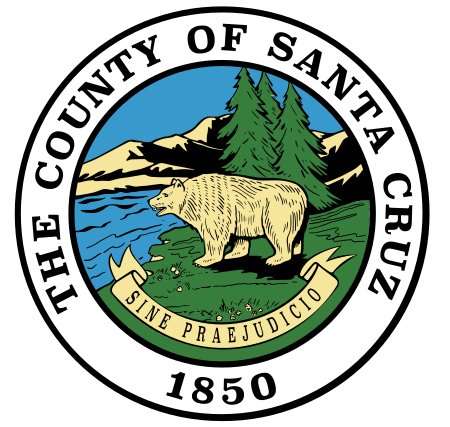SENIOR EMPLOYMENT AND TRAINING SPECIALIST (#SH2 ) $38.59-$48.91 hourly / $6,689.00-$8,478.00 monthly / $80,267.20-$101,732.80 yearly
Definition
Under direction, plan, organize and
supervise the work of a unit of Employment & Training Specialists, who are engaged
as case managers for one or more public assistance programs. This includes training, directing, assigning prioritizing,
and evaluating the work of subordinate staff. This classification may also work
directly with program participants, which may include the following: assess
strengths and barriers; develop individualized plans; identify and refer
clients for employment and training opportunities; refer clients to community
partners for barrier-removal services; identify and authorize supportive
services; monitor attendance and participation; and perform other work as
required.
Distinguishing Characteristics
Senior Employment and Training
Specialist: Positions in this class serve as supervisors
with the responsibility of training and reviewing the work of subordinate
staff.
Typical Tasks
·
Plans, trains, evaluates, and
directs the work of subordinate staff, who are working with clients that
receive public assistance benefits;
·
Provides guidance to staff on
difficult or complex issues with participants;
·
Coordinates with service provider
staff;
·
Acts as a liaison to community
partners concerning services for program participants, including employment and
training programs, case conferences, coordination of supportive services,
housing, mental health, substance abuse, domestic violence, legal services;
·
Provides technical assistance to
staff;
·
Analyzes unit needs and establishes
work priorities;
·
Reviews completed staff work to ensure compliance
with regulations, agency policies, performance standards and unit goals;
·
Reviews and analyzes reports to
monitor participant, program, and staff performance;
·
Keeps supervisor informed of unit functioning and
consults with supervisor on difficult personnel problems, policy matters,
business processes, and performance standards;
·
Serves on departmental committees and workgroups;
·
Attends and conducts unit meetings;
·
Attends and participates in conferences and
in-service training sessions;
·
Interviews program participants to
identify and assign work activities best suited to their skills and abilities;
·
Assesses participant qualifications
and readiness for referrals of employment, classroom training, on-the-job
training, or supportive services;
·
Administers assessments to identify
aptitudes, educational, vocational achievements and interests;
·
Interprets and discusses assessment
results with participants;
·
Develops plans with participants
that reflect short- and long-term goals;
·
Counsels clients regarding solutions
to employment barriers with participants;
·
Refers clients to training programs
and other resources to improve employability;
·
Assists clients to prepare for
interviews and assist with applications and resumes;
·
Conducts workshops related to job
search techniques and appropriate career planning methods;
·
Maintains up-to-date documentation
of client progress;
·
Co-case management with other staff
and community partners;
·
Reviews reports on caseload and
program activities;
·
Takes part in promotion and outreach
activities;
·
Prepares reports and correspondence;
·
Input, access, and analyze data
using a computer;
·
Maintains detailed case records.
Employment Standards
Knowledge of:
- The principles of supervision, coaching, and training;
- Interviewing and
counseling techniques;
- Career, vocational or employment counseling techniques;
- The fundamental principles of human behavior;
- Appropriate record keeping methods;
- Employment and training programs and related community
resources.
Some Knowledge of:
·
The hiring trends and practices of
private and public sector employers;
·
Common occupational titles, the
usual minimum qualifications, training and/or experience required in order to
secure employment in those occupations;
·
The resources available for military
veterans may be required for some positions;
·
Principles of diversity, equity, and
inclusion.
Ability to:
- Plan, train, assign, supervise, and evaluate
subordinate staff;
- Provide guidance to staff regarding difficult or
complex client situations;
- Effectively use data reports to help oversee the work
of staff;
- Communicate clearly and effectively in oral and written
form;
- Coordinate activities with service providers;
- Interpret, explain, and apply complex regulations,
directives and policies dealing with eligibility determination and program
operation;
- Evaluate unit operations and revise procedures and
workflow as needed to improve efficiency;
- Establish and maintain effective working relationships
with subordinates, departmental staff, and others contacted in the course
of work;
- Recognize and effectively handle personnel problems
with staff;
- Prepare reports, forms, plans, and correspondence;
- Interview persons from various backgrounds, to obtain
information concerning their employment skills, work readiness needs, and
occupational goals;
- Identify and assess needs and barriers to employment
and develop meaningful employability plans;
- Implement client employment plans through referral to
appropriate programs;
- Conduct follow-up with clients, service providers and
employers to monitor attendance, evaluate progress and take necessary case
actions;
- Plan and schedule work effectively;
- Effectively utilize community agency partners;
- Work with employers to develop employment
opportunities;
- Determine and authorize necessary supportive services for
clients.
Training and Experience: Any combination of training and experience which would
provide the required knowledge and abilities is qualifying. A typical way to
obtain these knowledge and abilities would be:
Two years of experience[1]
in career, vocational, or employment counseling and successful completion of
fifteen (15) semester units in psychology, sociology, counseling, career
planning, testing and measurements or related courses. A Master’s Degree in
Vocational Rehabilitation, Counseling, Industrial Psychology, or a closely
related field may be substituted for six months of the required experience.
or
One year of experience equivalent to
Employment and Training Specialist II in Santa Cruz County.
SPECIAL REQUIREMENT:
Possession of a valid California
Class C Driver's License, or the incumbent must be able to provide suitable
transportation approved by the appointing authority.
Miscellaneous
ORIG: 2/85
REV: 8/86, 1/88, 11/22
JAD, OM, CL
DISC#2-SH1
CLASS: SH2; EST: 2/1/1985; REV: 11/1/2022;

